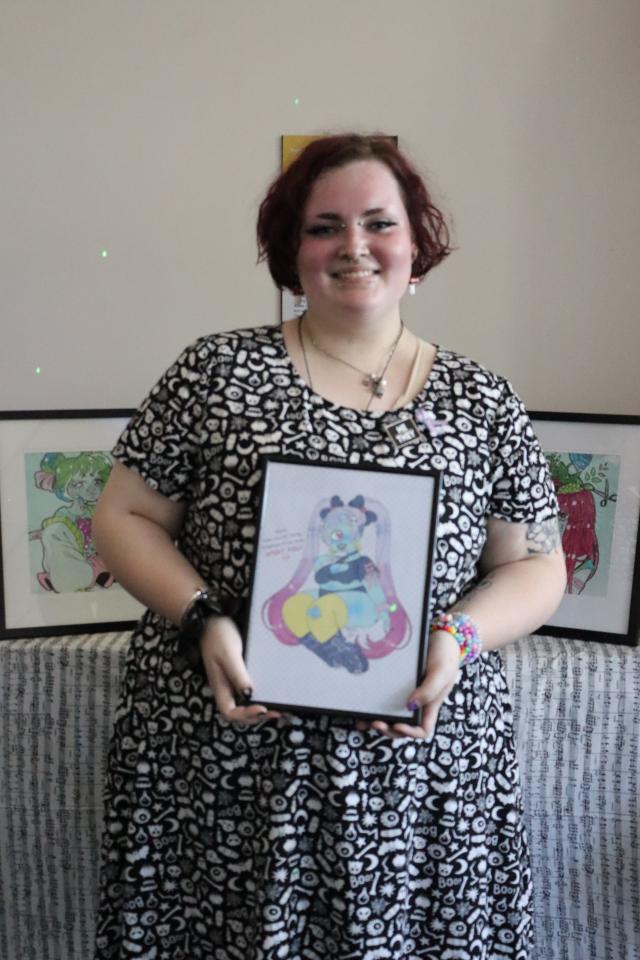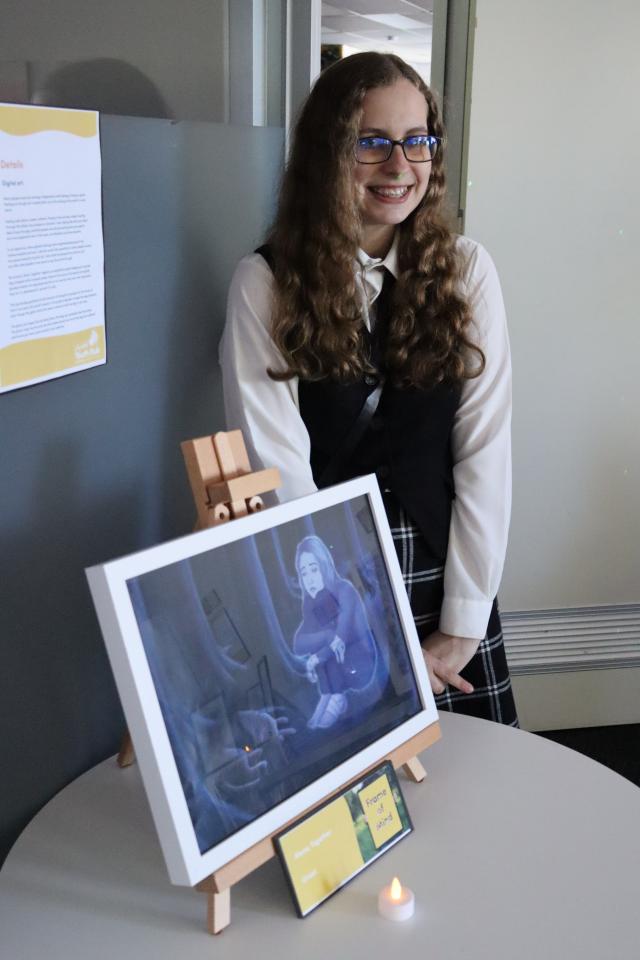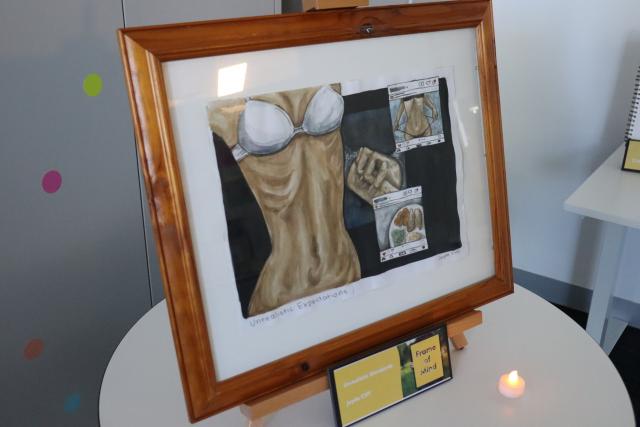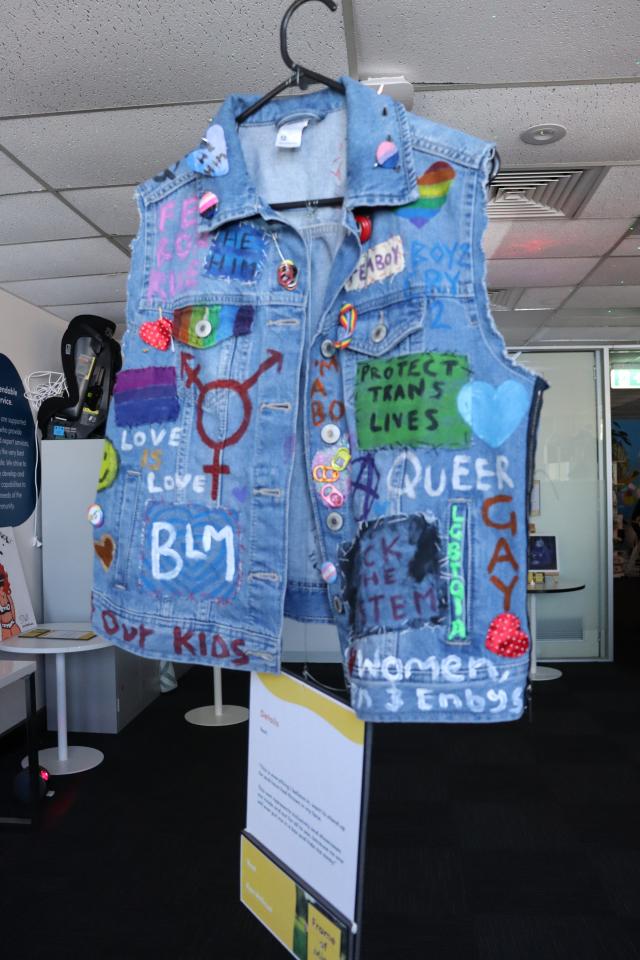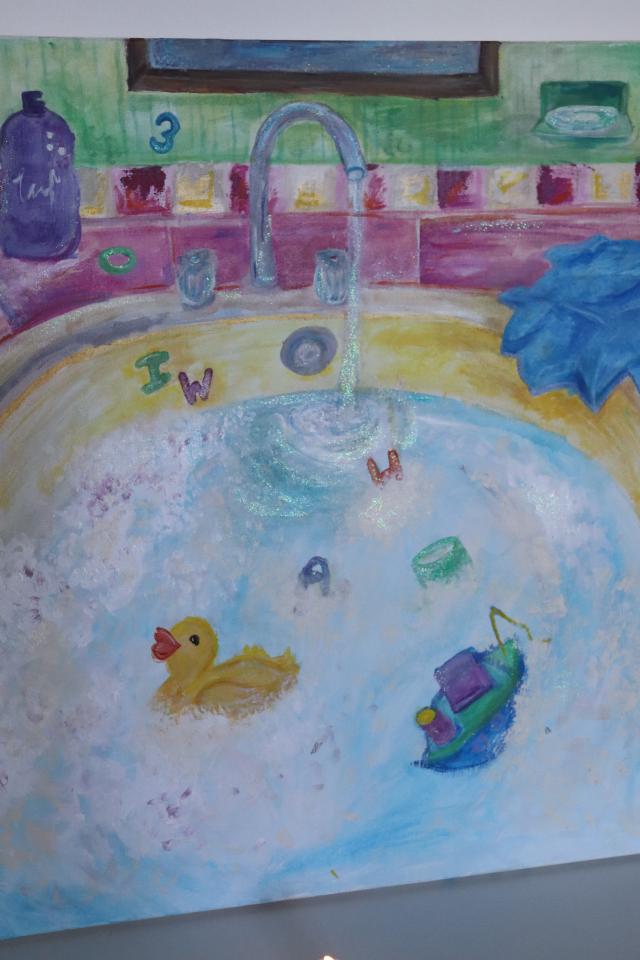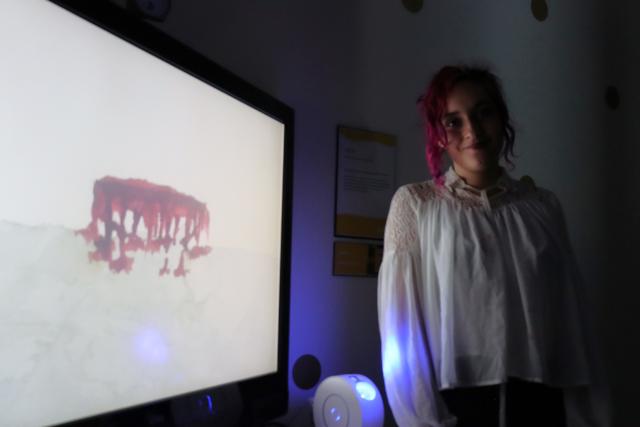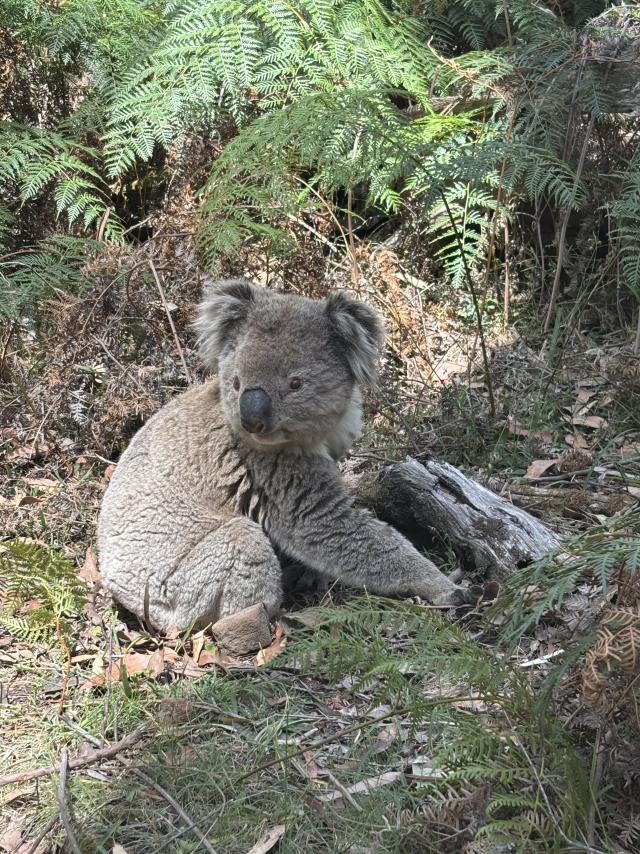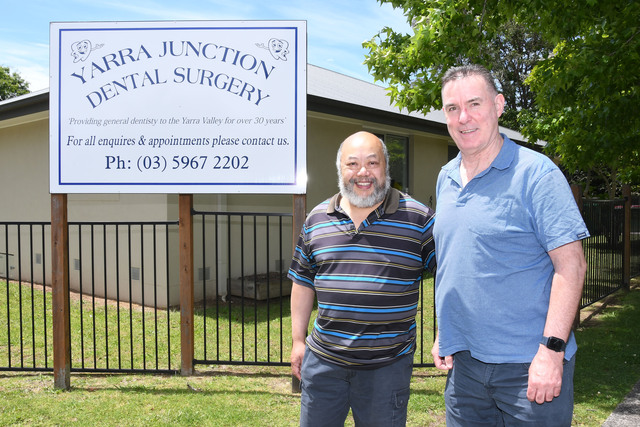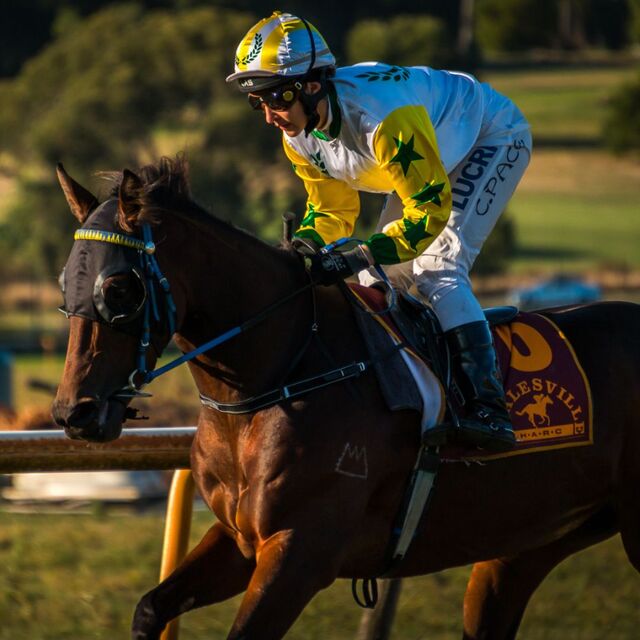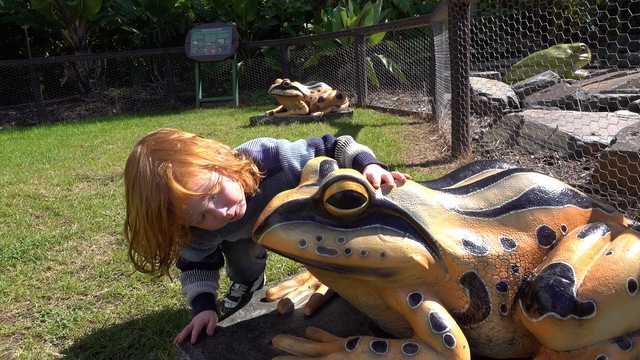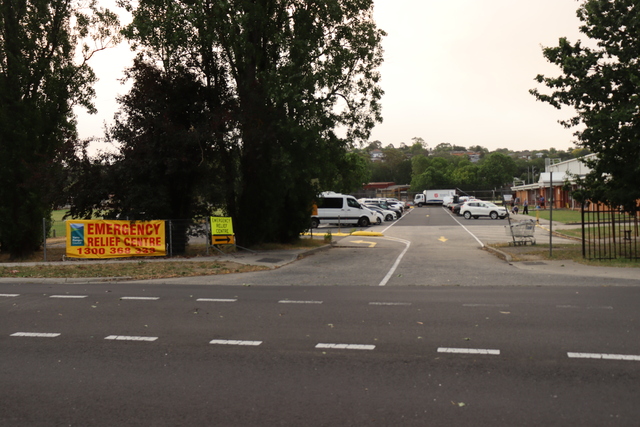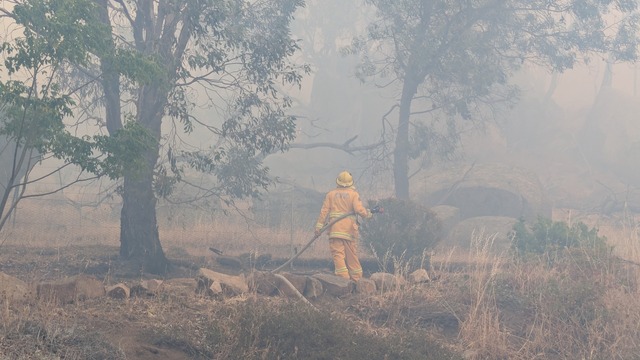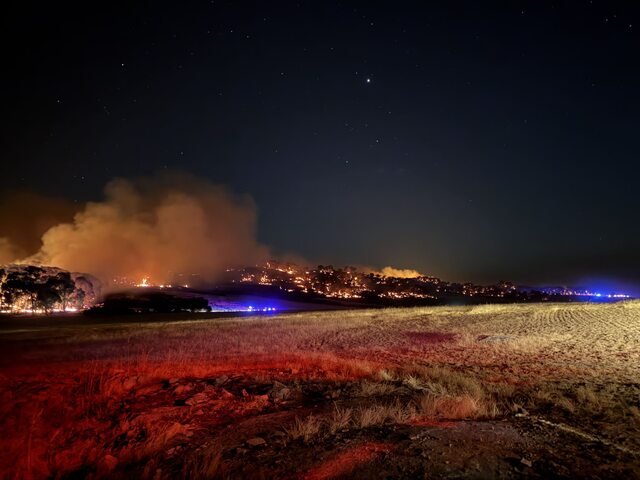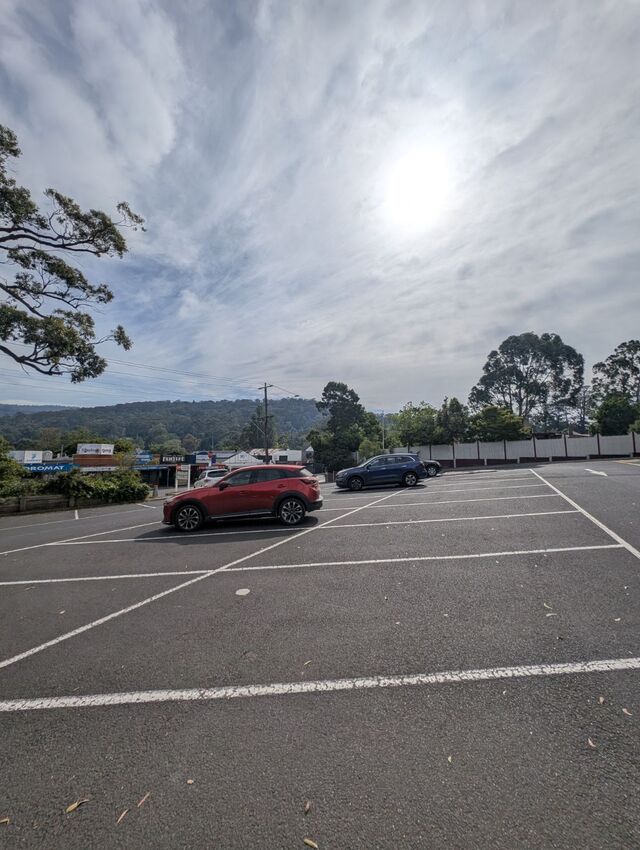Giving young people a space to express their true selves was one of the foundational traits of the Lilydale Youth Hub and in its final event, young people were able to do just that.
The Frame of Mind exhibition on Tuesday 20 December brought together artworks of all kinds from various young people on the topic of mental health.
Coordinated by Youth Hub counsellor Shelly Morrison, the idea behind the exhibition was to draw on the lived experience movement to really open the conversations around mental health.
“It was inspired by that idea to reduce stigma, talk about mental health, and open up the conversations to just start talking about the reality of what our young people face,” she said.
“This has always been a super creative space, people are always creating and we thought it was a perfect opportunity to make a nice formal exhibition.”
From digital prints to stop motion videos, paintings and photography, Shelly said she was extremely impressed by the variety and talent of the young people who submitted their work.
“Everyone’s journey is really unique in their style and I’m also just really impressed by people saying they want their blurb up there to complement the work and share a bit about their mental health journey as well.
“When people speak up, that allows others to speak up too and we start to reduce stigma and look at what we need for mental health support.”
For exhibiting artist Jocelyn, who created a personal and moody stop motion based on the idea of repetition numbing, art is always subjectively interpreted by humans but it’s what art does to open conversations that makes talking about mental health more achievable.
“Humans are always in the equation when it comes to art. But when we talk about parts of humanity that are seen as wrong or maladaptive or unhealthy, it’s suddenly not interesting to talk about or it’s not important to talk about,” Jocelyn said.
“Then when you talk about it, you’re told you’re being selfish, you’re part of a self centred generation that’s totally obsessed with labels.
“In this society where it simplifies people into profit and statistics, a political system that simplifies human issues and human suffering into numbered preferences, maybe we need more discussions about humanity. Maybe we need more discussions about what things feel like and the impact of people’s actions.”
While noting that ‘trauma’ might be an overdiagnosis, Jocelyn said it “demonstrates our growing understanding of the depth and effect actions can have on someone” and that depression isn’t just about being sad, nor mental health just being emotions.
“[We need to] talk about how we experience the world…that humans aren’t profit and we’re not numbers and we can’t be simplified into algorithms and we deserve breaks and care.”
Even though the theme of the exhibition was rather broad, Shelly said it did become apparent that many young people wanted to explore the topic of body image.
“It did really come up as quite a theme of body image and social media. I see how many issues, although there are benefits, just compared to my generation growing up and the layers of complexity that social media can cause, so it came up really strongly in quite a few of them,” she said.
As the final event to be held in the Youth Hub space before its closure on Friday 23 December, Shelly said while sad, it was nice to have a celebration of young people and their contributions to the Hub.
“It’s actually a really nice way [to finish]. That’s what we’re all about, mental health and accepting each unique individual for who they are and where they’re at on their journey.”
While staff were devastated by the final few days in the Hub, their hearts were breaking more so for the young people.
“Our hearts are really breaking for all of our young people of the Yarra Ranges but we do believe in your resilience and encourage you to take the warm, loving spirit of the hub out into the world. Take what you’ve learned and just spread it,” Shelly said.

